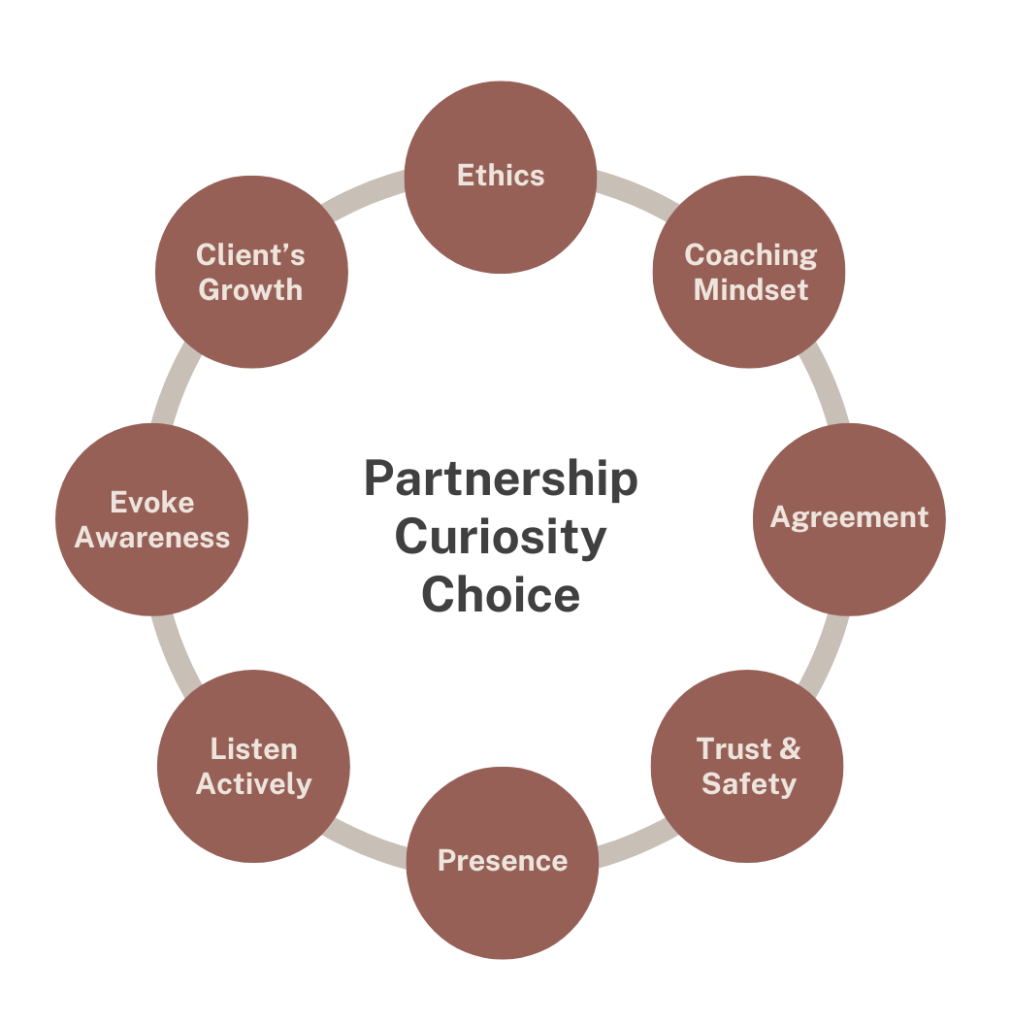Exploring a career empowering others to reach their full potential? Looking to optimise your leadership and management abilities with coaching tools? If you’re nodding yes, then we have an exciting read for you.
Embarking on a journey into coaching psychology is a transformative decision, and can unlock the potential for great personal and professional growth. Imagine blending the insights of psychology with the action-oriented world of coaching. That’s coaching psychology for you – a field that’s all about helping folks reach their best selves, both at work and in their personal lives.
In this blog article, we delve into this dynamic field, exploring its fundamental principles and the profound impact it can have on individuals and organisations. We also navigate the essential considerations to weigh when contemplating enrolment in a coaching psychology programme.
From understanding the synergy between psychology and coaching to recognising the practical applications in diverse settings, we illuminate the path that prospective students may traverse as they contemplate this educational endeavour.
Join us on this insightful exploration of coaching psychology and the pivotal factors to consider before enrolling in a coaching psychology course!
Table of Contents
First, what is Coaching Psychology?
By definition, coaching psychology is an interdisciplinary field that integrates theories and techniques from the field of psychology and coaching to facilitate wellbeing and personal and professional development (Grant & Cavenagh, 2007).
Think of coaching psychology as a best friend to both psychology and coaching. It’s like taking the best of both worlds to help people thrive.
The International Society for Coaching Psychology (ICSP) defines coaching psychology as a “distinct branch of applied psychology” that is informed by theory and research to contribute to personal and organisational development (ICSP, 2018, p. 5).
Studying coaching psychology is like getting a key to understanding what makes us tick – our thoughts, emotions, behaviours, and what drives us. It’s about using this knowledge to help people achieve their goals and add more value to their families, workplaces, and communities.
Coaching vs Coaching Psychology
What is the difference between coaching and coaching psychology? It’s actually not so much a difference, but an add-on. Coaching is about helping clients attain their goals through structured sessions, while coaching psychology incorporates further psychological approaches, interventions, and processes to the coaching practice.
(Coaching Psychology is) the scientific study of behaviour, cognitive and emotion within coaching practice to deepen our understanding and enhance our practice within coaching.
Passmore, 2010 Tweet
Having psychological understanding allows coaches to gain a deeper insight into clients’ motivation and wellbeing. For instance, did you know we often focus more on the negatives than positives? A coach with a background in psychology can help clients to identify this thinking trap and shift their perspective, building resilience and a growth mindset (Baumeister, 2001).
In such a way, skilled life coaches armed with knowledge in psychology can better understand what their clients are expressing, allowing them to tailor their approach to address unhelpful patterns appropriately whether through reframing challenges, building strengths, or harnessing positive emotions.
By incorporating strategies informed by psychology, such as positive psychology interventions, coaches can guide clients towards achieving their goals with a more constructive and empowered outlook. The nuanced understanding from coaching psychology enhances the effectiveness of coaching sessions by aligning with the client’s psychological tendencies and promoting lasting positive change.
The Proven Benefits of Coaching
From resolving relationship difficulties, improving executive performance, improving sales performance, and even helping people with cognitive difficulties learn new skills, coaching can be applied in any situation, catering to diverse populations and addressing a variety of issues.
Research on coaching has found a wide range of positive effects, including reducing stress sensitivity at work, contributing to changes in management styles, and improving charisma, inspiration, and performance (Passmore, 2010).
Coaches achieve these changes by learning how to set an effective agenda, how to explore their clients’ topic of interest, and how to ask powerful questions. But aside from implementing a suitable structure in their sessions, coaches must also develop a mindset that is open, curious, flexible and other-centred. This means that the coach views their clients as capable, empowered, and resourceful – able to develop, generate their own solutions. The coach’s role is to help others realise their potential and help them expand their capacity.
With this mindset, coaches refrain from giving advice or providing solutions, enabling their clients to generate their own solutions. This is beneficial for few reasons:
- Individuals are more likely to stay accountable and take ownership
- They are more likely to care (as it is something that is important to them- not you) and, hence, stay motivated to take action towards their goals/ aspirations
- It improves the coach’s relationship with others as they perceive you more as their “thinking partner” rather than someone who tells them what to do
- It trains people to think for themselves and problem solve without continually asking for solutions.
With the ever-growing body of research in coaching and coaching psychology, coaches must skillfully learn, understand, and implement the various coaching and psychological techniques so that they can best support their clients in achieving their goals.
The Coaching Landscape in Singapore
Singapore is buzzing with coaching opportunities. Coaching has gained recognition and popularity across various sectors, including business, leadership, and personal development. Professional coaching organisations and training programmes have emerged to meet the increasing demand for certified coaches.
Since its establishment in 2002, the International Coach Federation (ICF) Singapore has had a growing presence, setting the gold standard for coaching excellence and providing accreditation for coaches. One example is the core competency framework laid out by ICF to guide coaching best practices. These competencies ensure that all coaches have standardised skills that allow them to conduct coaching sessions effectively:

The Singapore government has also recognised the value of coaching, with initiatives to promote leadership development and skills enhancement in various industries. Organisations are increasingly seeking coaching services to enhance leadership skills, improve employee performance, and foster a positive work culture. Among professionals seeking deeper impact, coaching psychology has become an increasingly important field for further development.
Are Coaching Skills Only for Professional Coaches?
No, coaching isn’t just for the pros. It’s for anyone looking to make a positive impact in their world.
For example, Managers and leaders can use coaching psychology to motivate their teams, improve communication, and boost performance. Educators can promote students’ self-efficacy and foster a positive learning environment. Healthcare and mental health professionals can use coaching interventions to facilitate behaviour change and enhance their therapeutic effectiveness. Parents can support their childrens’ personal growth and guide loved ones through emotional difficulties. The list can go on and on.
In essence, coaching skills equip individuals with versatile and applicable skills that can be implemented across various professional and personal contexts. Individuals equipped with knowledge in coaching psychology have boundless opportunities to impart a myriad of benefits to those around them.
Useful Insights from Coaching Core Competencies
Of the 8 core competencies outlined by ICF to streamline the coaching profession, three stand out for their impact on the coach-client relationship and the overall quality of everyday conversations. Mastery of these skills not only improves coaching but also facilitates the integration of the other core competencies:
- Presence
- Active Listening
- Powerful Questions
Presence
Being present as a coach is paramount for fostering an effective coaching session. It involves being fully engaged with the client in the moment, providing undivided attention, and creating an environment conducive to reflective thinking. The coach’s presence is instrumental in formulating relevant questions that align with the ongoing conversation, connecting seamlessly with the coaching session’s context. This demands a genuine sense of curiosity, prompting the coach to ask probing questions that unravel the client’s perspective. A coach’s presence not only facilitates a deeper exploration of the client’s thoughts but also enables meaningful connections to be established between the discussions and the client’s overarching goals.
Active Listening
Active listening is more than just listening to the literal words being said by the client. Beyond what is spoken, it involves a deep, heart-centred connection. Sometimes, clients may not readily open up, and their initial reflections may not capture the essence of their concerns. Coaches must therefore employ active listening as a tool to grasp the client’s deeper message. It is also about evaluating the manner in which statements are conveyed — the tone of voice and the underlying emotions. This requires observation beyond hearing, encompassing the visual cues such as body language and facial expressions. Mastering active listening demands extensive practice to discern nuances.
Powerful Questions
Also known as “evoking awareness” in ICF’s framework, powerful questions are about expanding clients’ thinking by encouraging them to look at their issue from different perspectives. Questions like “Was this a cause of the circumstances” or “Was this due to a past experience” can help break down an issue into various components, and help clients discover their blindspots. Coaches craft well-informed questions to facilitate clients to find their own solutions. Guided by empathy and the wisdom from coaching psychology, they can direct clients towards great clarity on challenges.
Is Accreditation Necessary to Become a Coach in Singapore?
As of 2023, there are no legal requirements for accreditation to practise as a coach in Singapore. The field of coaching is still relatively unregulated, although this is likely to change in the near future. But while individuals can offer coaching services without formal accreditation, many coaches in Singapore choose to pursue ICF accreditation, or other relevant certifications, to demonstrate their commitment to ethical standards and continuous professional development. Clients often prefer working with accredited coaches as it provides assurance of a certain level of training and adherence to professional standards.
Coaching is a delicate task involving the personal lives of clients, and coaches must first be trusted before they begin collaborating on personal goals, aspirations, and the well-being of their clients. Coaching Psychology adds a powerful toolkit of evidence-based strategies to effectively support their client in unlocking full potential.
While The School of Positive Psychology’s Graduate Diploma in Coaching Psychology (GDCP) does not automatically confer accreditation to students upon graduation, it provides the required training hours and recognition to allow graduates to apply for ICF accreditation.
Not only does the GDCP programme feature more contact hours with seasoned coaching professionals, it is also an academic programme which enhances career prospects and adds to further educational progression. Plus, it’s the only programme in Singapore blending coaching with positive psychology, giving you a unique edge: the confidence, competence, and community support for mastering the art of coaching.
So, is Coaching Psychology for You?
If you’re excited about helping others grow and want to expand your own career horizons, coaching psychology could be your calling. It’s not just about learning skills; it’s about making a real difference in people’s lives. Coaches have the ability to facilitate their clients to overcome challenges with resilience, achieve their goals, and expand their potential. But to master these valuable coaching skills requires comprehensive instruction, ample practice, and sophisticated guidance. While it may not be an easy journey, we guarantee that it will be a fulfilling one.
It is a big decision to take the step in furthering your education in coaching psychology, and there are many factors to consider. If you are thinking about diving in, we’re here to chat, guide, and help you figure out if this is the right path for you. Drop us a message anytime for a friendly, no-pressure educational consultation.
Jana Dawson
As the Head of Academic at The School of Positive Psychology, Jana is a positive psychology practitioner and an advocate of a
strengths-based approach in guiding individuals, teams and organisations to develop positive behaviours.
Sam Chia
Sam has over 30 years’ experience as an international business leader, coach, consultant, and facilitator. He is an executive coach and holds the Professional Certified Coach (PCC) credentialed from the International Coach Federation.
References:
Baumeister, R. F., Bratslavsky, E., Finkenauer, C., & Vohs, K. D. (2001). Bad is stronger than good. Review of general psychology, 5(4), 323-370.
Grant, A. M., & Cavanagh, M. J. (2007). Evidence-based coaching: Flourishing or languishing? Australian Psychologist, 42(4), 239-254.
Biswas-Diener, R. (2009). Personal coaching as a positive intervention. Journal of Clinical Psychology, 65(6), 544-553.
International Society for Coaching Psychology (ICSP). (2018). International Society for Coaching Psychology: Definition and scope of coaching psychology. https://www.isfcp.net/wp-content/uploads/2018/12/ISCP-Coaching-Psychology-Definition-and-Scope.pdf
Passmore, J. (2010). A grounded theory study of the coachee experience: The implications for training and practice in coaching psychology. International Coaching Psychology Review, 5(1), 48-62.
Passmore, J., Palmer, S., & Short, E. (2010) Results of an online UK survey of coaching and coaching psychology practitioners. Unpublished survey.


